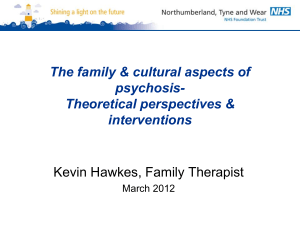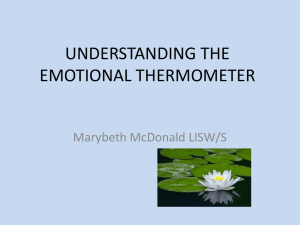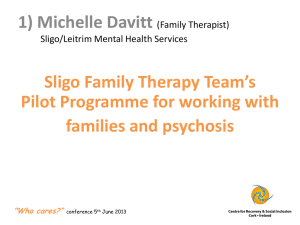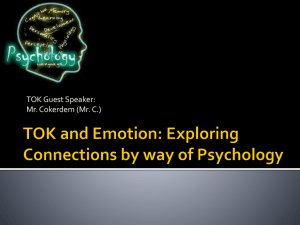High Expressed Emotion - Oxford Health NHS Foundation Trust
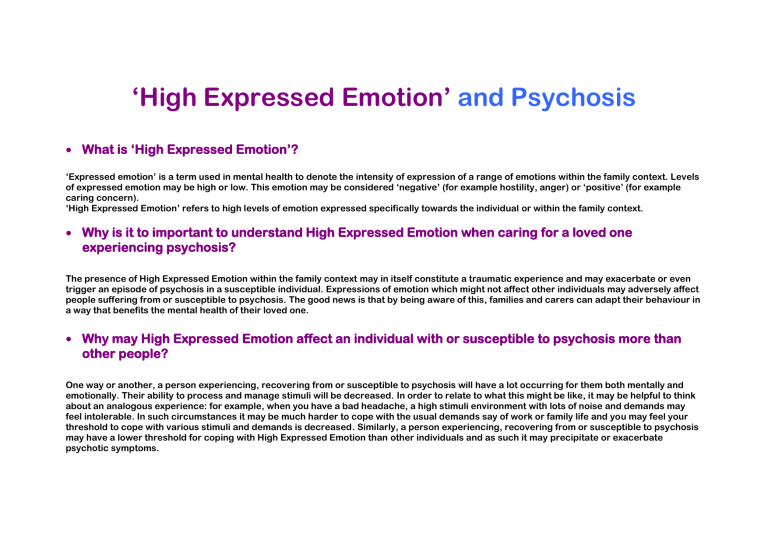
‘High Expressed Emotion’ and Psychosis
What is ‘High Expressed Emotion’?
‘Expressed emotion’ is a term used in mental health to denote the intensity of expression of a range of emotions within the family context. Levels of expressed emotion may be high or low. This emotion may be considered ‘negative’ (for example hostility, anger) or ‘positive’ (for example caring concern).
‘High Expressed Emotion’ refers to high levels of emotion expressed specifically towards the individual or within the family context.
Why is it to important to understand High Expressed Emotion when caring for a loved one experiencing psychosis?
The presence of High Expressed Emotion within the family context may in itself constitute a traumatic experience and may exacerbate or even trigger an episode of psychosis in a susceptible individual. Expressions of emotion which might not affect other individuals may adversely affect people suffering from or susceptible to psychosis. The good news is that by being aware of this, families and carers can adapt their behaviour in a way that benefits the mental health of their loved one.
Why may High Expressed Emotion affect an individual with or susceptible to psychosis more than other people?
One way or another, a person experiencing, recovering from or susceptible to psychosis will have a lot occurring for them both mentally and emotionally. Their ability to process and manage stimuli will be decreased. In order to relate to what this might be like, it may be helpful to think about an analogous experience: for example, when you have a bad headache, a high stimuli environment with lots of noise and demands may feel intolerable. In such circumstances it may be much harder to cope with the usual demands say of work or family life and you may feel your threshold to cope with various stimuli and demands is decreased. Similarly, a person experiencing, recovering from or susceptible to psychosis may have a lower threshold for coping with High Expressed Emotion than other individuals and as such it may precipitate or exacerbate psychotic symptoms.
Examples of High Expressed Emotion
Below are some fictitious case studies illustrating ‘high expressed emotion’:
‘Sam,’ a 17 year old, is experiencing negative symptoms of psychosis which manifest in him feeling de-motivated and spending hours in bed, not getting up in the morning. Sam’s Dad feels really worried about his son and wants to help him. Sam’s Dad is frustrated that Sam doesn’t seem to be listening to him. After prompting Sam several times throughout the morning to get up, Sam’s father raises his voice at Sam, expressing his frustration with him. This is an example of ‘high expressed emotion’ which could lead to an increase in Sam’s symptoms.
‘Sara’ is a 14 year old experiencing psychosis. Sara believes that she is evil and responsible for anything that goes wrong at home. Sara’s mother finds this very upsetting and is constantly trying to let Sara know these beliefs are not true. Sara’s Mum expresses this by reassuring
Sara constantly and telling her how worried she is about her. This is an example of ‘high expressed emotion’ which could lead to an increase in
Sara’s symptoms.
What might help?
Families often feel criticised and held to blame when incidence of High Expressed Emotion in the home is discussed. Supporting a loved one with a mental illness can be extremely challenging. It is completely understandable that emotions sometimes run high in the home under such circumstances. Understanding the effect that High Expressed Emotion can have on an individual suffering from or susceptible to psychosis however, and adapting behaviour to lower the levels of ‘high expressed emotion’ in the home can improve the mental health of the individual and in turn reduce stress experienced by family and carers.
Family therapy can be really useful in identifying incidence of High Expressed Emotion in the home and formulating different, more helpful ways of interacting as a family. Understanding the symptoms of psychosis will also better enable family and carers to see behaviour as a manifestation of illness rather than as an intrinsic aspect of their loved one. Understanding can reduce feelings of hostility, frustration, anger, anxiety, sadness and blame which sometimes arise in response to symptoms.
A tolerant, measured approach to an individual experiencing or susceptible to psychosis is associated with a lower incidence of relapse.

